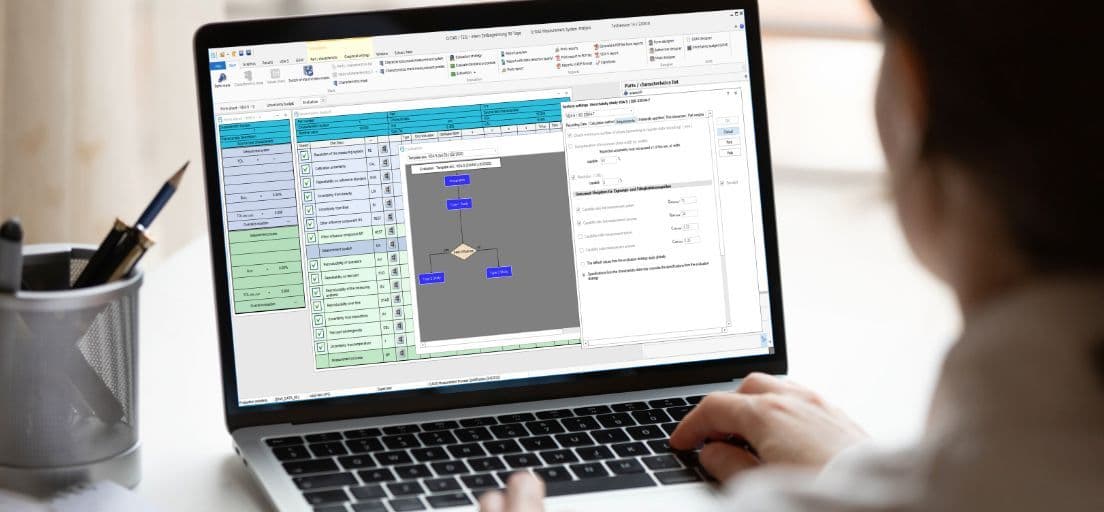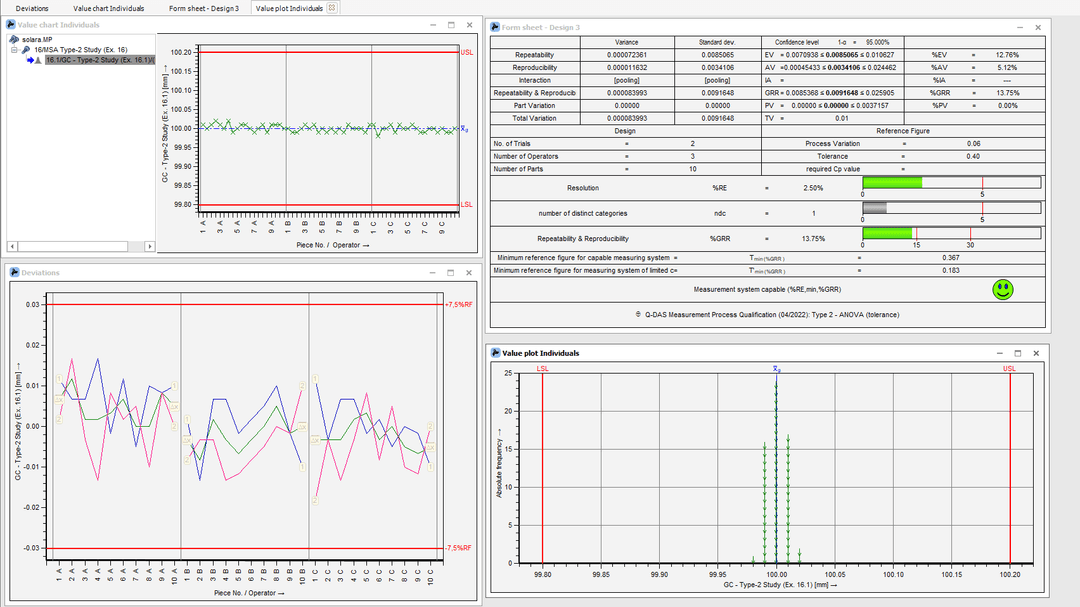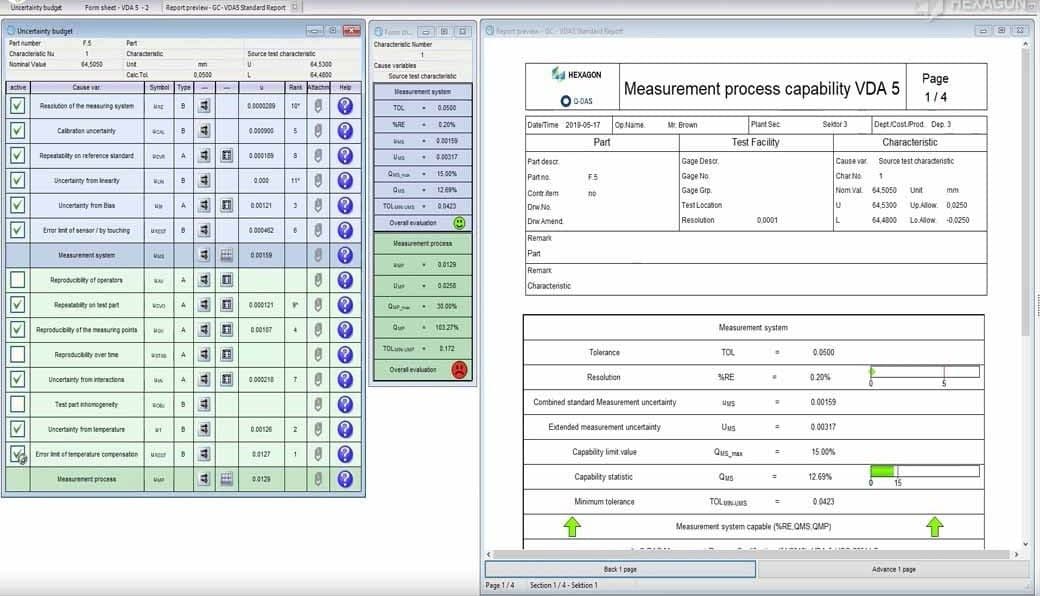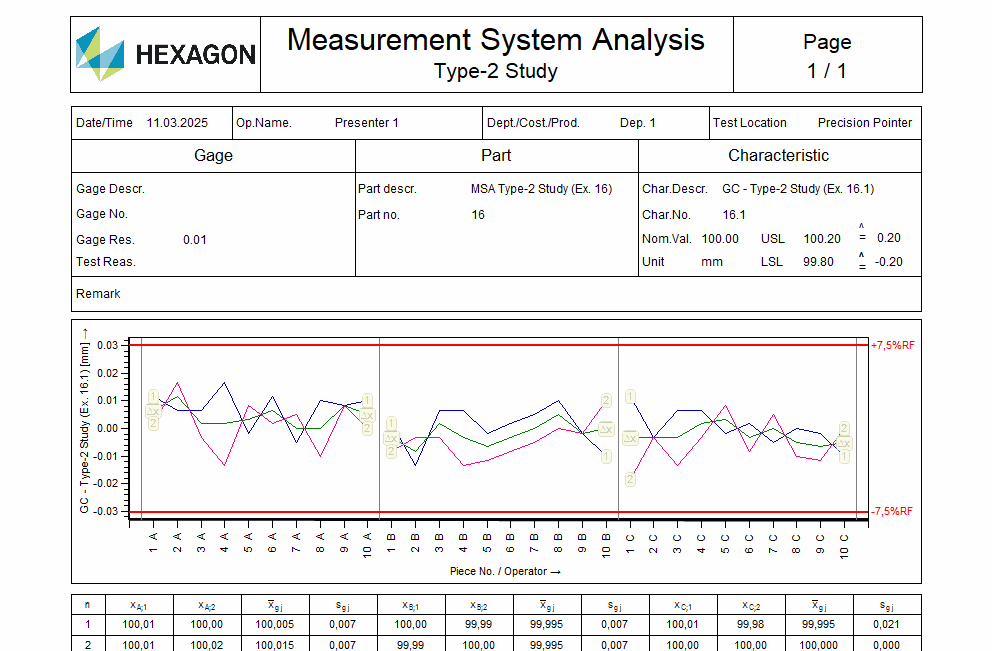© 2026 Hexagon AB and/or its subsidiaries
© 2026 Hexagon AB and/or its subsidiaries

Results you can rely on
Avoid misinterpretation of process data by ensuring measurement values obtained reflect the actual situation.
The benefits of using Q-DAS solara.MP include:
Benefits And Features
Measurement system analysis.

Measurement system capability as per MSA
Suitable measurement processes are required to achieve beneficial results. The MSA (Measurement Systems Analysis) reference manual often provides the basis for this decision. solara.MP is the tool of choice for instrument and gauge capability.

Test process capability according to VDA 5
Measurement processes are affected by a variety of influence quantities. Many standards thus demand the calculation of measurement uncertainty. VDA Volume 5 offers a practical approach and solara.MP helps to implement it easily and intuitively.
The calculation of measurement uncertainty is based on an approach that is quite as pragmatical as a MSA capability analysis; however, it follows the specifications of GUM (Guide to the expression of uncertainty in measurement) or EN V 13005. solara.MP thus combines uncertainty components into an uncertainty budget and calculates the expanded measurement uncertainty U.

Accessible reporting
Informative graphics, key performance indicators, and reports provide an accurate, efficient, and easily interpretable analysis of measurement systems.
Training and Resources
Connect and collaborate with your peers and experts
The Nexus Community provides you with excellent peer forums and the opportunity to learn from thousands of others in your industry. Currently, hundreds of peer forums waiting for you to explore into. Discover best practices and get the answers you need to succeed. Register for Nexus to get full access the Community forums.
Our team is ready to help
Our technical support teams are on hand to answer your questions. Contact us through our online form and we will get right back to you.
You might be interested in...
Related products

Results you can rely on
Avoid misinterpretation of process data by ensuring measurement values obtained reflect the actual situation.
The benefits of using Q-DAS solara.MP include:
Take advantage of various learning opportunities
Visit the Nexus Academy Catalog for a complete list of educational content. You can enroll for training, complete self-paced courses, register for distance learning, classroom instruction, live training events, and download or print your completion certificate.

Dive into our documentation to explore the full potential of our product offerings
Your ultimate resource for practical guidance and support. Here you’ll find a wealth of step-by-step how-to guides, detailed tutorials, and handy tips and tricks. Whether you’re troubleshooting an issue or looking for ways to optimize your use of our products, our Documentation Center provides clear and concise information to help you get the most out of your experience.

Expand your knowledge
Our Knowledge Base is your go-to hub for in-depth insights and valuable information. Explore a rich collection of articles and detailed white papers crafted to provide you with the knowledge you need to excel. From industry trends to expert analyses, our Knowledge Base is designed to keep you informed and empowered with the latest and most relevant content.

Downloads are only available on the desktop version. Please access our site from a desktop to download.
Get the most out of our resources.
For the latest updates, resources, and software, please visit our Download Center
Click the link to access the files you need today
Frequently Asked Questions
MSA 2nd, 3rd.and 4th Edition, VDA5 till 3rd Edition, and the GUM.
Validation kits are currently available for ISO/TR 11462-3: 2020(E) as well as for the MSA 4th Edition.